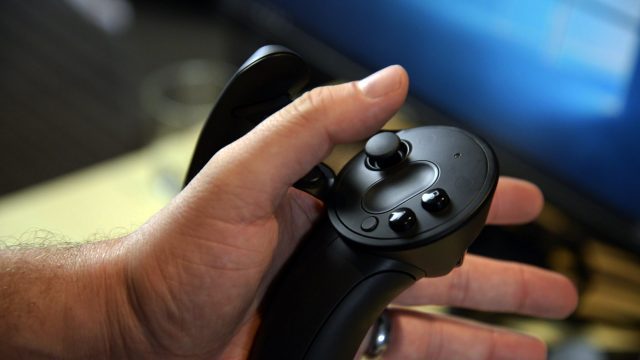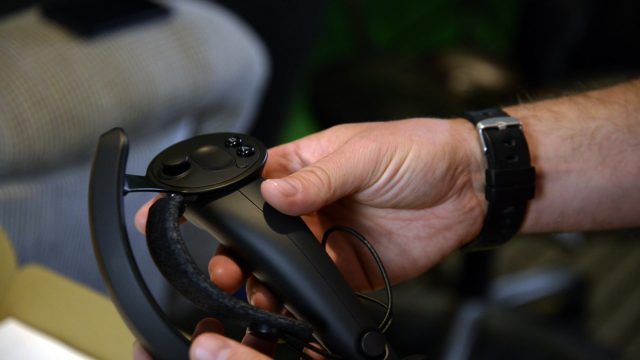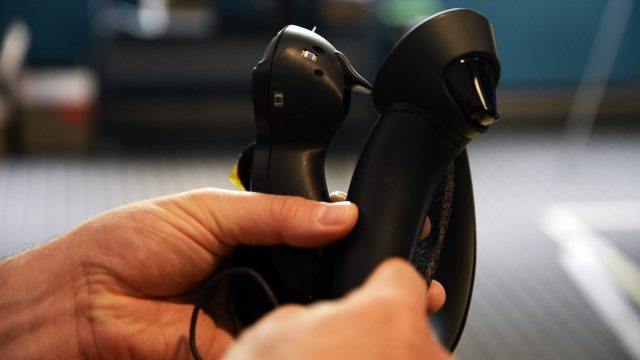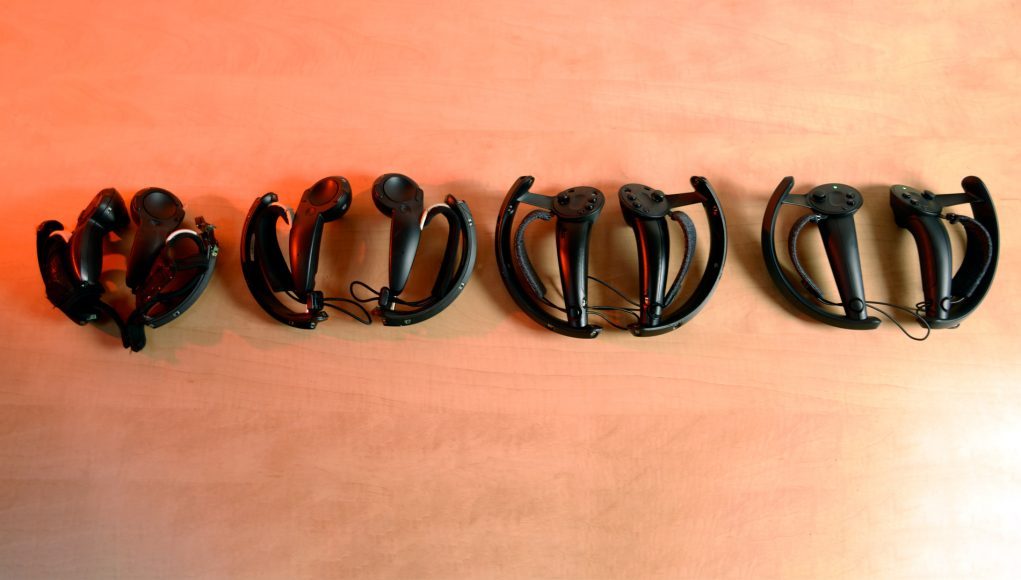It’s hard to believe that it’s been almost two years since the SteamVR Knuckles controllers were first revealed using a demo of our game, Call of the Starseed (2016), at Steam Devs Days 2016. Now, at the reveal of Knuckles EV2 this summer, we’ve got a whole bunch more to talk about.
Denny is the CEO and Creative Director of Cloudhead Games. As a VR Pioneer he has spearheaded two critically acclaimed and award-winning VR experiences with The Gallery – EP1: Call of the Starseed and EP2: Heart of the Emberstone. Working closely with VR hardware leaders in the space, including Valve, HTC, and Oculus, Cloudhead Games continues to innovate, inform, and entertain.
If you’re just getting into VR, or you haven’t heard of the term ‘Knuckles’ outside of VRChat (2017), the SteamVR Knuckles is the first modern non-glove VR controller to support five-finger tracking. While Oculus Touch is known to have capacitive sensors (capsense) for the thumb and index fingers, Knuckles controllers give users tracking of all five fingers using capsense on the triggers, face buttons, and the bases of controllers. These new inputs create a more natural representation of a user’s hands in VR, and they open the door to new gameplay possibilities.
While finger tracking has many exciting implications on its own, one of the most important innovations with Knuckles is its ‘open-handed hold.’ You can fasten the controller to your hand and then let go of your grip without dropping it—you can ‘hold’ it without actually holding it.

The first Knuckles prototype we received was diminutive in size compared to the EV2 we have today. The strapping mechanism was a crazy velcro wrap that you would slip into like a fingerless glove and then tighten around the palm. The controller itself was about the size of a desktop mouse with a deeply scalloped trackpad. That first prototype was an early kit for evaluation and feedback, and we wouldn’t see changes to Knuckles for nearly nine months.
The second pair of Knuckles we received (called Knuckles 1.3) focused mostly on ergonomics. We saw the velcro strap replaced by a pull-cord brace that tightened against the back of the hand instead of around the the palm; you could now slip the controller on and tighten it within a few seconds. Both the base and the sensor bar were longer for variable hand sizes and improved tracking.
But some of the biggest changes since the controller’s initial reveal came last week with Knuckles EV2.
The first thing to notice on EV2 is a completely redesigned controller face. The scalloped trackpad has gone wayward in favour of a touchstrip. The base of the controller now has grip/pressure sensitivity in addition to capsense. The redesign of the face buttons and introduction of thumbsticks align more closely with the control layout on Touch, which will make it easier to create common control schemes across platforms.
I think part of the rationale for moving from the trackpad to the thumbstick / touchstrip combo is that most trackpad interactions in VR were swiping motions rather than utilization of the full area of the pad. The new touchstrip offers the same functionality as the trackpad (lateral x-axis movement is there in a smaller footprint), plus pressure sensitivity for the thumb.

As well as some major changes to input, there are also some important ergonomic changes going on in EV2. The new strap in particular is really smart; it has a push-pivot point along the top circumference so you can move it forward and back to help get ideal hand placement for the capsense. It also features a rotational pivot to seat the strap comfortably on the back of your hand; and a material change from flat-padding to a nice gripped fabric that’s much more comfortable over long periods of use—and it makes perspiration a lot less noticeable during your Beat Saber (2018) sessions.

One of the more subtle changes to the hardware over time is the way in which the trigger buttons now interface with the handle of the controllers at a very slight curve. With previous iterations that curve was more dramatic, and in VR your brain had a tough time rectifying the gap between your trigger finger and the rest of your fingers. That gap has since been massaged to the point that your perception of finger separation in VR feels normalized.
Knuckles EV2 is a pretty radical shift for users coming from the Vive wands or even Oculus Touch. Vive users will find that teleportation and free locomotion is a much more comfortable experience with thumbsticks than with the old trackpad.
One question we get a lot is whether we prefer Touch or Knuckles, and the simple answer is that it’s not fair to compare them.
Touch comes from an Xbox origin with a goal to emulate the traditional mapping of a gamepad, while also introducing the concept of basic finger tracking. Knuckles is a next-gen solution with the goal of removing the abstractions of holding a gamepad or thinking about hand poses. These controllers are two different approaches built at two different times, and both companies have the right idea—using fingers and hands in a more intuitive way is the future of VR.
Which leads to another question: is Knuckles truly next-gen VR?
My answer is “absolutely.” I can interact in an open-handed manner with my environment; all of my fingers are unobstructed; and I don’t have to think about any hand poses, my hands just do what comes naturally. And when I need something in my hand, a controller is still there. If I grip an object or a gun, or do any other gross interaction in the environment, there is always something to meet my hand with haptics and pressure and tactility.
Obviously Knuckles is not the final step for VR input. Looking further into the future at the next four to five years, a lot of work is being done to provide exoskeleton inputs and per-finger haptics. But to get there with any success, we need to start here with hardware and software that enables developers to create new interactions with the entire hand considered.
Knuckles EV2 is a next-generation step toward whatever that future may be, and we’re so excited to be building our next VR experience toward that future too.








